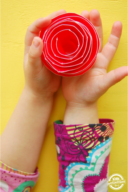
Allergies are one of the most prevalent health concerns in our country with approximately 20% of Americans being affected.
If you live in the Dallas area you are exposed to a lot of allergens. A new study reported in the
Huffington Post ranks the worst cities for allergies. While we didn’t make the top of the list like Phoenix and Las Vegas, Dallas did rank number 5 for the worst cities for sniffling and sneezing. If you suffer from allergies you may not be surprised to hear this because it’s an issue you are living with daily.
However, what may be startling to you is that findings from this study also showed a trend that the population is becoming increasingly sensitive to allergens. Over a specific three year period in this study, the general population appears to be 6 percent more sensitive to 11 different allergens.
But sometimes, even though it’s allergy season and we’re sniffling, it may be something more than just allergies.
Perhaps that runny nose is actually being caused by a summer cold virus.
But how can you tell the difference?
OTCSafety.org has provided She Is Dallas with a great
Common Colds vs. Allergies tip sheet to help us figure it all out including onset and duration of both as well as specific symptoms to look for. One thing that I’m grateful for learning from this tip sheet is that allergies never cause fever or body aches but will likely have a yellow mucus compared to clear drainage found in allergies. These are key signs that I might be dealing with a cold virus instead of just a pesky allergy.
I also found this article “
Decoding the Symptoms: Common Colds vs. Allergies” by Val Jones, MD of
Better Health to be very helpful in clarifying the difference between allergies and colds. However, she also points out that we can reduce our chances of catching a cold by simply washing our hands more often.
Think you can’t do anything to prevent an allergy flare-up? Not so. Dr. Jones explains how we can reduce our exposure to allergens by frequent dusting and vacumming but also by keeping windows closed during high pollen seasons and using air filters and allergy-proof bed covers.
Finally, Dr. Jones also provides some easy to understand treatment options for allergies and although there is no treatment for colds once you become infected, there are some over-the-counter medications that can treat your symptoms to help you get through your day and rest better at night.
She Is Dallas info: The research for the allergy study mentioned above was performed by Quest Diagnostics who studied 2 million blood samples across the country. Their findings not only show that our sensitization is increasing but also that gender, age and region of the country may also contribute to the nation’s allergy problems. For more information about over-the-counter medications, please visit OTCSafety.org. You can also follow OTCSafety.org on Facebook and Twitter.
 Allergies are one of the most prevalent health concerns in our country with approximately 20% of Americans being affected.
If you live in the Dallas area you are exposed to a lot of allergens. A new study reported in the Huffington Post ranks the worst cities for allergies. While we didn’t make the top of the list like Phoenix and Las Vegas, Dallas did rank number 5 for the worst cities for sniffling and sneezing. If you suffer from allergies you may not be surprised to hear this because it’s an issue you are living with daily.
However, what may be startling to you is that findings from this study also showed a trend that the population is becoming increasingly sensitive to allergens. Over a specific three year period in this study, the general population appears to be 6 percent more sensitive to 11 different allergens.
But sometimes, even though it’s allergy season and we’re sniffling, it may be something more than just allergies.
Perhaps that runny nose is actually being caused by a summer cold virus.
But how can you tell the difference?
OTCSafety.org has provided She Is Dallas with a great Common Colds vs. Allergies tip sheet to help us figure it all out including onset and duration of both as well as specific symptoms to look for. One thing that I’m grateful for learning from this tip sheet is that allergies never cause fever or body aches but will likely have a yellow mucus compared to clear drainage found in allergies. These are key signs that I might be dealing with a cold virus instead of just a pesky allergy.
I also found this article “Decoding the Symptoms: Common Colds vs. Allergies” by Val Jones, MD of Better Health to be very helpful in clarifying the difference between allergies and colds. However, she also points out that we can reduce our chances of catching a cold by simply washing our hands more often.
Think you can’t do anything to prevent an allergy flare-up? Not so. Dr. Jones explains how we can reduce our exposure to allergens by frequent dusting and vacumming but also by keeping windows closed during high pollen seasons and using air filters and allergy-proof bed covers.
Finally, Dr. Jones also provides some easy to understand treatment options for allergies and although there is no treatment for colds once you become infected, there are some over-the-counter medications that can treat your symptoms to help you get through your day and rest better at night.
Allergies are one of the most prevalent health concerns in our country with approximately 20% of Americans being affected.
If you live in the Dallas area you are exposed to a lot of allergens. A new study reported in the Huffington Post ranks the worst cities for allergies. While we didn’t make the top of the list like Phoenix and Las Vegas, Dallas did rank number 5 for the worst cities for sniffling and sneezing. If you suffer from allergies you may not be surprised to hear this because it’s an issue you are living with daily.
However, what may be startling to you is that findings from this study also showed a trend that the population is becoming increasingly sensitive to allergens. Over a specific three year period in this study, the general population appears to be 6 percent more sensitive to 11 different allergens.
But sometimes, even though it’s allergy season and we’re sniffling, it may be something more than just allergies.
Perhaps that runny nose is actually being caused by a summer cold virus.
But how can you tell the difference?
OTCSafety.org has provided She Is Dallas with a great Common Colds vs. Allergies tip sheet to help us figure it all out including onset and duration of both as well as specific symptoms to look for. One thing that I’m grateful for learning from this tip sheet is that allergies never cause fever or body aches but will likely have a yellow mucus compared to clear drainage found in allergies. These are key signs that I might be dealing with a cold virus instead of just a pesky allergy.
I also found this article “Decoding the Symptoms: Common Colds vs. Allergies” by Val Jones, MD of Better Health to be very helpful in clarifying the difference between allergies and colds. However, she also points out that we can reduce our chances of catching a cold by simply washing our hands more often.
Think you can’t do anything to prevent an allergy flare-up? Not so. Dr. Jones explains how we can reduce our exposure to allergens by frequent dusting and vacumming but also by keeping windows closed during high pollen seasons and using air filters and allergy-proof bed covers.
Finally, Dr. Jones also provides some easy to understand treatment options for allergies and although there is no treatment for colds once you become infected, there are some over-the-counter medications that can treat your symptoms to help you get through your day and rest better at night.





















0